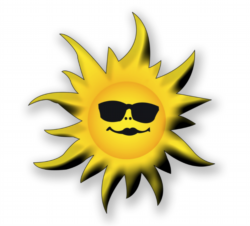by Timothy Rutt
 It's almost October, and yet this long stretch of high temperatures isn't over yet.
It's almost October, and yet this long stretch of high temperatures isn't over yet.
The National Weather Service predicts temperatures in the 100's on Monday and Tuesday, Oct. 1-2. The Los Angeles County Health Oficer has issued some guidelines for coping, especially for older adults, caretakers of infants, and children, people sensitive to the heat, and those who are working or playing outdoors.
“Everyone should remember to take special care of themselves, children, the elderly, and their pets. When temperatures are high, prolonged sun exposure may cause dehydration, heat cramps, heat exhaustion, and heat stroke,” said Jonathan E. Fielding, MD, MPH, Director of Public Health and Health Officer. “Never leave children, elderly people, or pets unattended in vehicles, even with the windows ‘cracked’ or open, as temperatures inside can quickly rise to life-threatening levels.”
Locally, the nearest cooling centers are the Altadena Senior Center, 560 E. Mariposa St., open from 8 AM-5 PM Monday through Friday; the Pasadena Senior Center, 85 W. Holly St., Pasadena, from 8:30 AM-4:30 PM. The Altadena Main Library, 600 E. Mariposa St. , is also a good place to while away the hot hours.
The county health department has also issued some guidelnes for coping with the heat, after the jump:
Schools, day camps, and non-school related sports organizations or athletes should take extra precautions during extreme heat. Practices and other outdoor activities should be scheduled for very early or very late in the day in order to limit the amount of time spent in the sun and heat. Heat may worsen the affects of poor air quality in areas of heavy smog.
Additional tips for those who must work or exercise outdoors:
- Ensure that cool drinking water is available.
- Drink water or electrolyte-replacing sports drinks often; do not wait until you are thirsty. Avoid drinking sweetened drinks, caffeine, and alcohol.
- Avoid drinking extremely cold water as this is more likely to cause cramps.
- Allow athletes or outdoor workers to take frequent rests.
- Pay attention to signs of dehydration which include dizziness, fatigue, faintness, headaches, muscle cramps, and increased thirst. Individuals with these symptoms should be moved to a cooler, shaded place, and given water or sport drinks.
- More severe signs of heat-related illness may include diminished judgment, disorientation, pale and clammy skin, a rapid and weak pulse, and/or fast and shallow breathing.
- Coaches, teachers, and employers should seek immediate medical attention for those exhibiting signs of heat-related illness.
- Avoid unnecessary exertion, such as vigorous exercise during peak sun hours, if you are outside or in a non-air conditioned building.
Older adults and individuals with chronic medical conditions:
- During peak heat hours stay in an air-conditioned area. If you do not have access to air conditioning in your home, visit public facilities such as cooling centers, shopping malls, parks, and libraries to stay cool.
- Do not rely only on open windows or a fan as a primary way to stay cool. Use the air conditioner. If you’re on reduced income, find out more about the Low Income Home Energy Assistance Program, by calling (866) 675-6623 or contacting your utility provider.
- Older adults and those on certain medications may not exhibit signs of dehydration until several hours after dehydration sets in. Stay hydrated by frequently drinking cool water. If you’re on a special diet that limits liquids, check with your doctor for information on the amount of water to consume.
- Stay out of the sun if you do not need to be in it. When in the sun, wear a hat, preferably with a wide brim, and loose-fitting, light-colored clothing with long sleeves and pants to protect yourself from sun damage. And remember sun screen and sun glasses.
Infants and Children:
- It is illegal to leave an infant or child unattended in a vehicle (California Vehicle Code Section 15620).
- Infants and young children can get dehydrated very quickly. Make sure they are given plenty of cool water to drink.
- Keep children indoors or shaded as much as possible.
- Dress children in loose, lightweight, and light colored clothing.
Pets:
- Never leave a pet unattended in a vehicle, even with the windows ‘cracked’ or open.
- Outdoor animals should be given plenty of shade and clean drinking water.
- Do not leave pets outside in the sun.
- Pets should not be left in a garage as garages can get very hot due to lack of ventilation and insulation.



